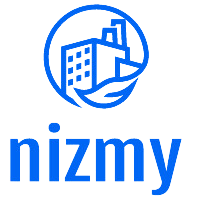Welcome to our comprehensive guide on IBM Hyperledger, one of the most powerful and innovative blockchain platforms in the market. In this article, we will explore the ins and outs of IBM Hyperledger and how it can revolutionize various industries by transforming traditional business processes into more secure, transparent, and efficient systems. Whether you are a business owner, developer or simply someone interested in the world of blockchain technology, this guide is for you. So let’s dive into the world of IBM Hyperledger and unleash its full potential.
What is IBM Hyperledger?
Before we delve into the specifics of using IBM Hyperledger, let’s first understand what it is. IBM Hyperledger is an open-source blockchain platform developed by the Linux Foundation in collaboration with leading players in the technology industry, including IBM. Unlike public blockchains such as Bitcoin, Hyperledger is a permissioned blockchain, meaning only authorized parties have access to the network and can validate transactions. This makes it ideal for businesses that require a high degree of privacy and control over their data.
The Architecture of IBM Hyperledger
IBM Hyperledger is built upon a modular architecture that allows organizations to customize and tailor the network to fit their specific needs. The primary components of the architecture include:
- Ledger – The ledger is the core component of any blockchain platform. It is a collection of records (blocks) that store all the data and transactions within the network.
- Smart Contracts – Smart contracts are self-executing code that runs on the blockchain. They allow for business logic to be automated and enforced on the network.
- Consensus Protocol – Since Hyperledger is a distributed system, a consensus protocol is required to ensure that all nodes agree on the state of the network. Hyperledger uses a modified version of the Practical Byzantine Fault Tolerance (PBFT) consensus algorithm.
- Membership Services – In order to maintain privacy and control over the network, Hyperledger uses a membership service provider (MSP) to manage identities and access control for participants in the network.
How to Use IBM Hyperledger

Now that we have a basic understanding of what IBM Hyperledger is, let’s look at how we can use it to transform traditional business processes. Here are some key areas where IBM Hyperledger can make a significant impact:
Supply Chain Management
Supply chain management (SCM) involves the coordination of various parties and processes to ensure the timely delivery of goods and services. However, SCM often suffers from inefficiencies, lack of transparency, and high costs. With IBM Hyperledger, businesses can create a secure and transparent supply chain network that allows for real-time tracking of goods, automated payments, and streamlined data sharing between suppliers, manufacturers, and distributors.
Digital Identity Management
The traditional approach to identity management involves storing personal information in centralized databases, which can be vulnerable to hacking and data breaches. IBM Hyperledger offers a more secure solution by allowing individuals to store their personal data on the blockchain and control who has access to it. This eliminates the need for intermediaries and provides a more decentralized and user-controlled approach to identity management.
Financial Services
IBM Hyperledger has the potential to revolutionize the financial services industry by providing a faster, more secure and cost-effective way to process transactions. With features such as smart contracts and digital identity management, banks and other financial institutions can automate many of their processes, reduce operational costs, and improve customer experience.
Examples of IBM Hyperledger in Action

To better understand the potential of IBM Hyperledger, let’s look at some real-world examples of its application in different industries:
Maersk and IBM Hyperledger
In 2016, shipping giant Maersk partnered with IBM to develop a blockchain-based platform called TradeLens. The platform, built on IBM Hyperledger Fabric, aims to digitize the global supply chain by providing real-time tracking of goods, automated paperwork and payments, and improved data sharing between different parties.
Everledger and IBM Hyperledger
Everledger is a technology company that uses blockchain to track high-value assets such as diamonds and fine wine. The company worked with IBM to develop a blockchain solution using Hyperledger Fabric, which provides an immutable record of each asset’s journey from mine or vineyard to customer. This not only reduces the risk of fraud and theft but also provides customers with confidence in the authenticity of their purchase.
Comparing IBM Hyperledger with Other Blockchain Platforms
When it comes to blockchain platforms, there are various options available, each with its own unique features and benefits. Here are some key differences between IBM Hyperledger and other popular blockchain platforms:
Ethereum vs. IBM Hyperledger
Ethereum is a public blockchain platform that allows anyone to join the network, create smart contracts, and build decentralized applications (DApps). In contrast, IBM Hyperledger is a permissioned blockchain that restricts access to authorized participants and offers more privacy and control over data. While Ethereum may be better suited for open and decentralized applications, IBM Hyperledger is ideal for businesses that require a more secure and controlled approach to blockchain technology.
IBM Hyperledger vs. Corda
Corda is another popular permissioned blockchain platform developed by R3. Unlike IBM Hyperledger, Corda is designed specifically for use in financial services and has features such as automatic contract execution and settlement. However, IBM Hyperledger offers more flexibility and customization, making it suitable for a wide range of industries and use cases.
Tips and Best Practices for Using IBM Hyperledger
If you are considering implementing IBM Hyperledger in your business, here are some tips and best practices to keep in mind:
- Clearly define your use case: Before implementing any blockchain solution, it is essential to have a clear understanding of how it will benefit your business and what problems it will solve.
- Choose the right network model: Hyperledger offers different network models, including public, private, and hybrid. Choose the one that best suits your needs and requirements.
- Collaborate with other organizations: One of the key benefits of Hyperledger is its ability to connect different organizations and streamline processes. Consider collaborating with other businesses in your industry to maximize the potential of the platform.
- Constantly monitor and update: As with any technology, it is crucial to continuously monitor and update your Hyperledger network to ensure it is running efficiently and securely.
FAQs about IBM Hyperledger
Q: Is IBM Hyperledger the same as Bitcoin?
A: No, IBM Hyperledger is a permissioned blockchain platform designed for use in businesses, while Bitcoin is a public blockchain used for peer-to-peer transactions.
Q: Can I use IBM Hyperledger for my small business?
A: Yes, IBM Hyperledger can be beneficial for small businesses looking to streamline their processes, reduce costs, and improve customer experience.
Q: Do I need to know coding to use IBM Hyperledger?
A: While some coding knowledge may be helpful, you do not necessarily need to know how to code to implement IBM Hyperledger in your business. There are user-friendly tools and platforms available to help you build and manage your network.
Q: How much does it cost to use IBM Hyperledger?
A: The cost of using IBM Hyperledger will vary depending on factors such as network size, complexity, and customization. It is best to consult with an expert or service provider to get an accurate estimate.
Q: Is IBM Hyperledger secure?
A: Yes, IBM Hyperledger offers more security compared to traditional systems due to its decentralized and immutable nature. However, it is essential to ensure proper security measures are in place to protect your network from potential vulnerabilities.
Conclusion
In conclusion, IBM Hyperledger is a powerful blockchain platform with the potential to transform various industries and revolutionize traditional business processes. Its flexible architecture, highly secure features, and ability to connect different organizations make it an ideal solution for businesses looking to stay ahead in the ever-evolving world of technology. Armed with the knowledge and expertise provided in this comprehensive guide, you can now unleash the full potential of IBM Hyperledger and take your business to new heights.

